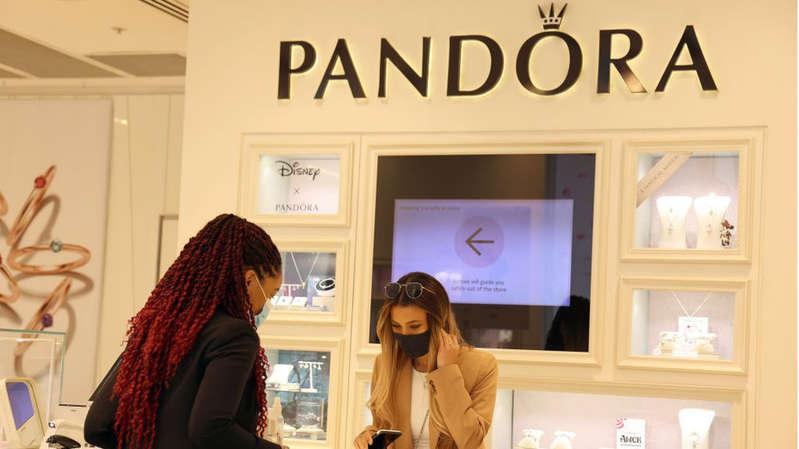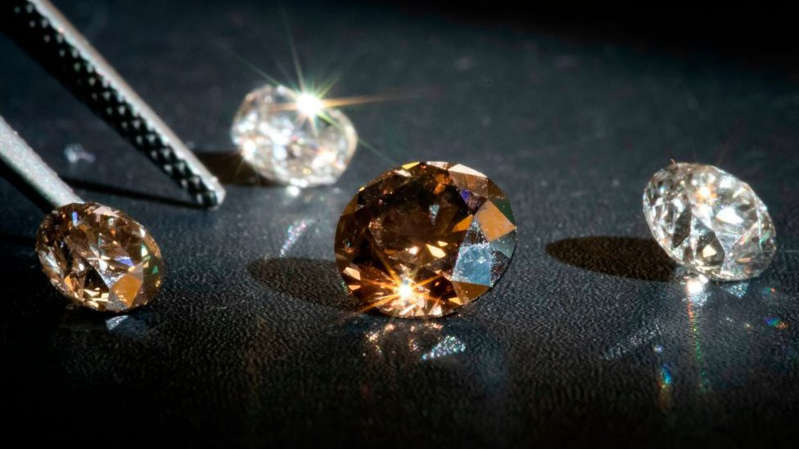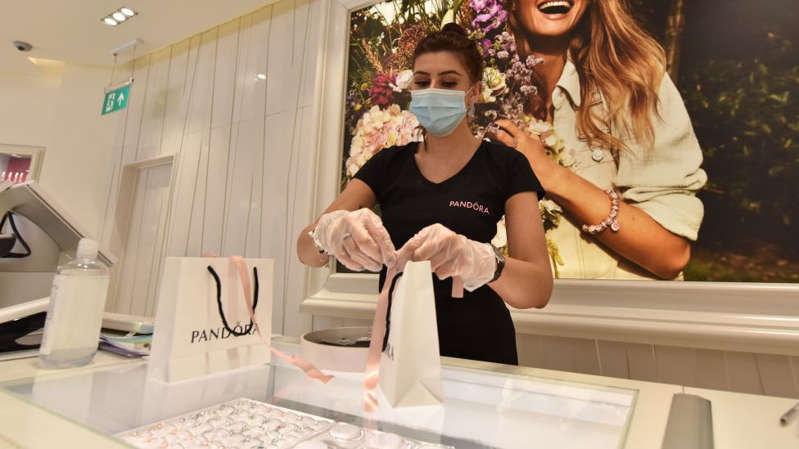
Pandora to offer customers lab-made diamond jewelry
The world's largest jewelry company, Pandora, will no longer make jewelry with natural diamonds, but will switch to exclusively laboratory-made diamonds.
The company claims that this decision is due to concern for the environment.
Artificial diamond production, among other things, has also been welcomed by the international community for political reasons. Twenty years ago, the Kimberley Process, initiated by the United Nations, came into force to prevent the so-called “blood diamonds”, illegally mined and financed by armed rebel groups in countries such as Angola, Côte d'Ivoire, Sierra Leone, and Democratic Republic of the Congo.
However, there is another factor – the price. “We can get the same result for a third less,” Pandora CEO Alexander Lachik told the BBC.
In 2020, global production of lab-grown diamonds reached 6-7 million carats.
Meanwhile, natural diamond production fell to 111 million carats last year, after peaking at 152 million in 2017, according to a report by the Antwerp World Diamond Center and consultancy Bain & Company.
Diamond mining in Russia, Canada, Botswana and Australia suffered the most.

Laboratory diamonds are especially popular with millennials
The coronavirus pandemic has had a serious impact on the diamond industry. De Beers, which mines about one-fifth of the world's diamonds, says its production fell 18% last year.
Pandora lab diamonds are produced in the UK and the UK will be the first country to sell them.
Diamonds for Millennials
New jewelry with lab-grown diamonds will start at £ 250 (about € 290). Although diamond jewelry traditionally accounts for only a small fraction of the 100 million pieces of jewelry that Pandora sells worldwide each year, Alexander Lachik believes low prices will boost sales.
“Pandora jewelry is now more of an everyday jewelry, although it is often bought as a gift. But the diamond industry largely makes money from consumers who buy expensive jewelry for significant events – engagements, weddings, anniversaries,” emphasizes Lachik.
“We want to expand the market by making diamonds a part of everyday life so that people can make more of these gifts to themselves. Of course, we expect that companies that sell natural diamond jewelry will have to move,” says the CEO of Pandora.
Bain's lead author, Olya Linde, is convinced that there will be room for both.
“Natural diamonds and lab-grown diamonds can coexist very well and contribute to the growth of the entire diamond market,” she says.
According to Linde, consumers are now choosing lab-grown diamonds over their natural counterparts mainly due to better designs and lower prices.
The environmental and ethical implications of diamond mining are of the least concern to buyers, the expert notes.
At the same time, a Bain study showed that sustainability of diamond production is still important for a certain category of buyers – “millennials” and “Gen Z” who were born after 1980.

Pandora expects the shift to synthetic diamonds to boost sales while reducing the cost of producing and purchasing natural diamonds.
Manufacturing Issues and Ethical Issues
The problem with lab-made diamonds is that it takes a lot of energy to make them.
Now 50% to 60% of them come from China, where they are produced using high pressure and high temperature technology. At the same time, electricity for their production is obtained from coal, which greatly pollutes the air.
At the same time, in the United States, the largest retail market for lab-grown diamonds, more attention is paid to the use of renewable energy sources.
The largest US producer, Diamond Foundry, claims its process is “100% hydropower for zero emissions.”
Both Chinese and American laboratory diamonds are chemically and physically identical to mined diamonds.
- Flawless 102-carat diamond sold for $ 15.7 million. It's very cheap
- Russia will lead the fight against “bloody” and fake diamonds
- In Sierra Leone, a pastor finds a huge diamond
Last year, a Human Rights Watch report noted that some jewelry companies are concerned about ethical production, but most of them still fail to convince consumers that human rights were not violated in the production of their jewelry.
The report also states that Pandora is one of the most ethical companies when it comes to finding suppliers and contractors.
At the same time, the World Diamond Council is confident that laboratory diamonds are not a panacea for protecting the environment, human rights and preventing the entry of “blood diamonds” into the market.
“Any suggestion that artificially produced diamonds will play a role in reducing the trade in conflict diamonds is false and not based on facts,” the council said in its report.
The council's experts also add that for people living off artisanal and small-scale diamond mining, the cessation of mining means a complete loss of basic income. This will have a devastating impact on their lives, leading to poverty and further conflict.
Pandora CEO Alexander Lachik says the company thinks about the long term, not just today's consumer preferences.
“We want to be a business that leaves a minimum carbon footprint. I have four children, and when I die, I want to leave the planet in a better state than what it is in now, largely due to the actions of humanity,” says is he.

